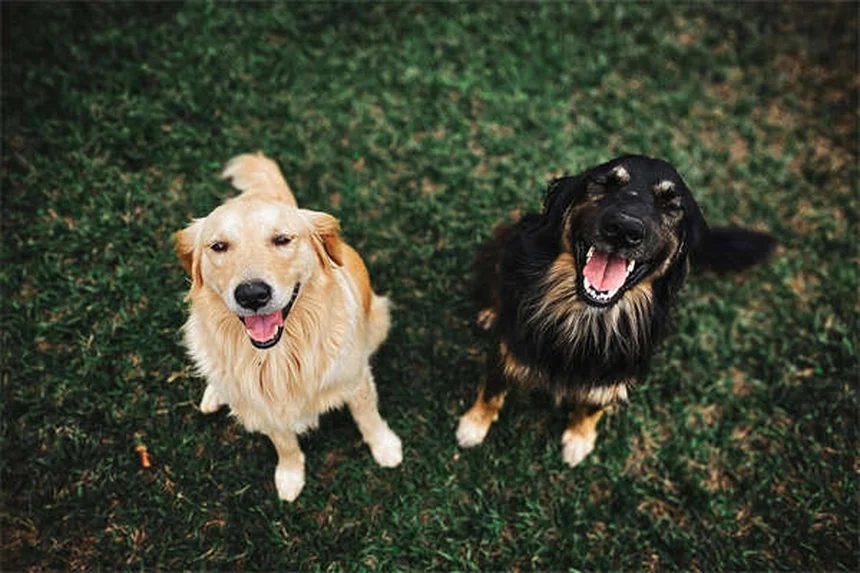Advertisement
How long do rabbits live? The answer is: domestic rabbits typically live 7-10 years, but with proper care they can live even longer! I've raised bunnies for over a decade, and let me tell you - that fluffy ball of energy hopping around your living room could be your companion for an entire decade if you do things right. While wild rabbits rarely make it past a few years due to predators and harsh conditions, our pampered house bunnies have hit records of 18+ years! The secret? It's all about diet, environment, vet care, and lots of love. Stick with me and I'll share everything I've learned about helping bunnies live their longest, healthiest lives - from choosing the right breed to senior bunny care tips that really work.
E.g. :Kitten Teething: What to Expect & How to Help Your Furry Friend
- 1、Meet Your Bunny: Understanding Rabbit Lifespans
- 2、The Secret Sauce for Long-Lived Bunnies
- 3、Daily Habits for Happy, Healthy Bunnies
- 4、Vet Visits: The Checkups That Count
- 5、Bunny-Proofing Your Life
- 6、Special Care for Senior Bunnies
- 7、The Emotional Side of Bunny Ownership
- 8、Bunny-Proofing Your Schedule
- 9、The Financial Reality of Bunny Parenthood
- 10、Bunny-Proofing Your Relationships
- 11、When Things Get Tough
- 12、FAQs
Meet Your Bunny: Understanding Rabbit Lifespans
Rabbit Basics 101
Did you know male rabbits are called bucks, females are does, and babies are kits? Just like us humans have different life expectancies, bunny lifespans vary too. While wild rabbits typically live 1-9 years due to predators and accidents, our domestic buddies can live 7-10 years with proper care. The record holder? A super senior bunny who made it to 18 years and 10 months!
Let me break down the bunny life stages for you:
| Life Stage | Age Range | Key Milestones |
|---|---|---|
| Newborn | 0-8 weeks | Eyes open at 10 days, weaned by 8 weeks |
| Teenage Bunny | 3-5 months | Puberty begins (watch out for hormones!) |
| Adult | 7-9 months | Fully mature - time for spay/neuter |
| Senior | 5-8 years | Needs extra TLC and vet checkups |
Breed Matters - But Not As Much As You Think
With over 60 breeds, lifespan varies. Lionheads typically live 7-9 years, while larger breeds like Flemish Giants average 5-8 years. But here's the kicker - proper care can help any bunny beat the averages!
Did you know spaying/neutering adds years to your rabbit's life? Unspayed females have an 80% chance of developing uterine cancer by age 5. That's why fixing your bunny is one of the best longevity gifts you can give!
The Secret Sauce for Long-Lived Bunnies
 Photos provided by pixabay
Photos provided by pixabay
Home Sweet Home
Imagine living in a cramped studio apartment with nothing to do - sounds miserable, right? Your bunny feels the same! Their enclosure should be at least 4 times their size with:
- Comfy bedding (1-2 inches of paper-based)
- Temperature between 60-75°F
- Safe hiding spots and platforms
And please - keep them indoors! Outdoor bunnies face predators, extreme weather, and diseases like Rabbit Hemorrhagic Disease that can cut their lives short.
Dinner Time Delights
What's on the menu for a long-lived bunny?
Unlimited hay - timothy for adults, alfalfa for youngsters. Fresh greens daily (romaine, cilantro, parsley), a quarter cup of pellets per 5 pounds, and the occasional fruit treat (think blueberry, not banana split!). Always have clean water available - I use heavy bowls to prevent tipping.
Daily Habits for Happy, Healthy Bunnies
Move That Fluffy Body!
Bunnies need at least 4 hours of exercise daily. Mine gets the run of my bunny-proofed living room every evening. Pro tip: yoga mats protect those delicate feet from sore hocks!
Why is exercise so crucial? It prevents obesity (a major bunny killer), keeps their digestive system moving, and satisfies their natural need to explore. A bored bunny is an unhappy bunny!
 Photos provided by pixabay
Photos provided by pixabay
Home Sweet Home
Did you know rabbits are as smart as dogs? They need mental stimulation! Try:
- Cardboard castles (free and fun to destroy!)
- Dig boxes filled with shredded paper
- Treat puzzles made from toilet paper rolls
My bunny's favorite? A simple cardboard tube stuffed with hay - hours of entertainment for pennies!
Vet Visits: The Checkups That Count
Prevention Is Cheaper Than Treatment
Here's a question: When was your bunny's last vet visit? If you can't remember, it's time to schedule one! Annual checkups catch problems early, and dental exams prevent painful molar spurs.
Watch for these red flags: weight changes, drooling, diarrhea, or decreased appetite. Rabbits hide illness well, so any behavior change warrants a vet call. Trust me - I learned this the hard way when my first bunny got sick!
The Spay/Neuter Advantage
Let's talk about the elephant in the room - or rather, the unfixed bunny in the room. Besides preventing cancer, spaying/neutering:
- Reduces destructive chewing and spraying
- Makes litter training easier
- Allows peaceful bonding with other bunnies
The ideal age? 4-6 months for small breeds, 5-7 months for larger ones. Find an exotic vet experienced with rabbits - their anatomy is quite different from cats and dogs!
Bunny-Proofing Your Life
 Photos provided by pixabay
Photos provided by pixabay
Home Sweet Home
Did you know your living room is a minefield for bunnies? Electrical cords look like tasty vines to chew! Other hazards include:
- Toxic plants (lilies are deadly!)
- Small spaces they can get stuck in
- Carpet fibers that cause intestinal blockages
I use cord protectors and keep houseplants up high. A little prevention saves thousands in vet bills - and possibly your bunny's life!
The Power of Pair Bonding
Here's a fun fact: Happy bunnies live longer! In the wild, they live in colonies, so solo house rabbits often get lonely. A bonded pair:
- Grooms each other (those hard-to-reach spots!)
- Provides constant companionship
- Encourages more activity and play
Just remember - proper introductions take time. I spent weeks slowly introducing my bunnies through cage bars before they became best friends!
Special Care for Senior Bunnies
Golden Years Adjustments
Is your bunny over 5? Congratulations - you've got a senior citizen! Older bunnies need:
- Softer bedding (memory foam works great)
- Lower litter box sides for easy access
- More frequent vet visits (every 6 months)
My elderly bunny loved heated pads in winter - just make sure they can move away if too warm!
Spotting Age-Related Issues
Why does my bunny seem slower these days? Aging brings changes like:
- Arthritis (ramps help sore joints)
- Dental issues (softer hay varieties help)
- Decreased vision (keep furniture arrangement consistent)
With extra TLC, many bunnies enjoy quality life into their teens. My record? A 14-year-old who still binkied (that happy bunny jump) every morning!
References
Marinell Harriman. House Rabbit Handbook: How to Live with an Urban Rabbit. Drollery Press. 2013.
Harcourt-Brown, Frances. Textbook of Rabbit Medicine. United Kingdom, Butterworth-Heinemann, 2002.
Quesenberry, Katherine, and James W. Carpenter. Ferrets, Rabbits, and Rodents-E-Book: Clinical Medicine and Surgery. Elsevier Health Sciences, 2020.
Parker, Karen. The Rabbit Handbook. United States, Barron's Educational Series, 2000.
Brown, Susan. Rabbit Care. Veterinary Partner. 2009.
RSPCA. Keeping your Rabbit Happy. 2022.
Pollock, Christal. Basic Information Sheet: European Rabbit. 2018.
Featured Image: iStock.com/Nynke van Holten
The Emotional Side of Bunny Ownership
Reading Your Rabbit's Mood
Ever wonder what your bunny's trying to tell you? Those twitchy noses and ear positions speak volumes! When my bunny flops onto her side, I know she's completely relaxed. But if you see thumping hind legs, that's bunny for "I'm seriously annoyed right now!"
Here's a fun experiment - try making different facial expressions at your rabbit. You'll notice they respond differently to smiles versus frowns. Mine actually comes over to investigate when I pretend to cry! Their emotional intelligence might surprise you.
Building Trust Takes Time
New bunny parents often ask me, "Why won't my rabbit let me pet them?" Here's the truth - rabbits are prey animals by nature. That initial skittishness? Totally normal! I spent three months sitting quietly with my rescue bun before she finally approached me.
The breakthrough moment? When I started lying flat on the floor during playtime. Suddenly, I wasn't this giant scary predator anymore. Now she climbs onto my back while I'm watching TV! Pro tip: let them come to you, and always pet from the side - reaching over their head triggers instinctive fear.
Bunny-Proofing Your Schedule
Morning Routines That Work
You know what's cuter than a bunny? A bunny with a predictable schedule! These creatures thrive on routine. My morning looks like this:
- 6:30 AM: Fresh hay refill (they hear the bag crinkle and come running)
- 7:00 AM: Greens served in their special "breakfast plate"
- 7:15 AM: Quick litter box refresh
Miss your bunny's breakfast time by 30 minutes? Prepare for the dramatic foot flicks of disapproval! Consistency helps reduce stress, which directly impacts their health.
Vacation Planning for Bunny Parents
Thinking about that weekend getaway? Here's what I've learned about bunny-sitters:
Your neighbor who watches your cat won't necessarily understand rabbit care. I created a Bunny Care Cheat Sheet that includes emergency vet numbers, favorite hiding spots, and even how to interpret different ear positions. Last vacation, my sitter texted me a photo with the caption: "Ears at half-mast - does this mean she's bored or just sleepy?" Now that's a prepared pet-sitter!
The Financial Reality of Bunny Parenthood
Unexpected Costs to Consider
That $25 adoption fee? Just the beginning, my friend. Here's what shocked me in my first year:
| Expense | Initial Cost | Annual Cost |
|---|---|---|
| Proper Enclosure | $200-$400 | $0 (if maintained) |
| Spay/Neuter | $300-$600 | $0 |
| Emergency Vet Visit | $200-$2000 | Varies |
| Toys & Enrichment | $50 | $100 |
See that emergency vet line? That's why I started a "Bunny Fund" savings account. When my guy needed sudden dental work last year, I was ready.
DIY Savings That Actually Work
Who needs expensive pet store toys when you've got recycling? My bunny's favorite things:
- Toilet paper rolls stuffed with hay (free entertainment!)
- Old phone books for shredding (just remove glossy pages)
- Cardboard boxes with multiple entry/exit holes
The only store-bought item worth splurging on? A quality brush. Those shedding seasons are no joke - I could knit a sweater with what comes off my bunny in spring!
Bunny-Proofing Your Relationships
When Friends Don't Understand
"It's just a rabbit" - ever heard that one? I have, and here's how I respond: "Actually, she's my emotional support animal who helps with my anxiety." That usually shuts down the criticism real quick!
The truth is, people who've never bonded with a rabbit just don't get it. My college roommate thought I was crazy for spending $500 on my bunny's dental surgery. Then she saw him binkying across the room after recovery and finally understood.
Finding Your Bunny Community
You know what's awesome? Meeting other bunny lovers who get it. I found my tribe through:
- Local House Rabbit Society meetups
- Instagram hashtags like #bunnylife
- Rabbit-savvy vet waiting rooms (best conversations happen there!)
Last month, my bunny group organized a "Bunny Prom" where we dressed up our rabbits (safely!) and took photos. Sounds silly? Maybe. But watching 20 rabbits hopping around in tiny bowties was pure joy.
When Things Get Tough
Dealing With Loss
Here's the hardest part no one talks about - saying goodbye. My first rabbit lived to 12, and when he passed, I was devastated. People said, "It was just a pet," but he was family.
What helped? Creating a memory box with his favorite toys, whiskers I'd collected over the years, and paw prints in clay. Now, when I miss him, I look through our photos and remember how he'd do happy flips when I came home.
Knowing When to Adopt Again
Is there a "right time" after losing a bunny? In my experience, it's different for everyone. I waited six months before adopting again, but some people find comfort in providing a home to another rabbit sooner.
The key is making sure you're emotionally ready - rabbits pick up on our energy. When I brought home my current bunny, I knew I was ready because I stopped comparing her to my first. She's completely different - and perfect in her own way!
E.g. :Does anyone know what rabbit lifespan actually is? : r/Rabbits
FAQs
Q: What's the average lifespan of a pet rabbit?
A: Most pet rabbits live between 7-10 years, but several factors affect this. Smaller breeds like Netherland Dwarfs often live longer than giant breeds. Spayed/neutered rabbits typically outlive intact ones by several years - unspayed females have an 80% chance of developing uterine cancer by age 5! With exceptional care including proper diet, housing, and veterinary attention, some rabbits reach 12-15 years. The current Guinness World Record holder lived to 18 years and 10 months - proof that with dedication, your bunny could be part of your life for nearly two decades!
Q: Do indoor or outdoor rabbits live longer?
A: Indoor rabbits absolutely live longer - typically 2-3 times longer than outdoor bunnies! Outdoor hutches expose rabbits to extreme temperatures, predators (even if caged, the stress alone can cause health issues), and deadly diseases like RHDV2 that can wipe out entire rabbit colonies. Indoor bunnies enjoy climate-controlled environments, protection from parasites, and closer bonding with their humans. I always recommend keeping rabbits indoors - it's one of the simplest ways to add years to your bunny's life while preventing countless health risks.
Q: What rabbit breed lives the longest?
A: While individual care matters more than breed, smaller breeds generally outlive larger ones. Dwarf breeds like Holland Lops and Mini Rex often reach 10-12 years, while giant breeds like Flemish Giants average 5-8 years. That said, I've seen well-cared-for giants surpass 10 years! The key is understanding your breed's specific needs - for example, dwarf breeds are prone to dental issues requiring regular vet checks, while giants need extra joint support. Rather than choosing solely for longevity, pick a breed matching your lifestyle, then focus on providing exceptional care regardless of size.
Q: How can I tell if my rabbit is getting old?
A: Rabbits become seniors around 5-6 years old, showing subtle changes first. You might notice less energetic zoomies, slightly cloudier eyes, or more napping. Other signs include:
- Weight changes (often gain then later loss)
- Stiffer movements (arthritis is common)
- Dental issues requiring more frequent trims
- Thinner fur or difficulty grooming hard-to-reach spots
The good news? With adjustments like orthopedic bedding, ramps, and senior-formula food, many bunnies remain active and happy well into their teens!
Q: What's the most important factor for rabbit longevity?
A: If I had to pick just one, it's proper diet. An unlimited supply of fresh timothy hay (or alfalfa for young buns) keeps their digestive system moving and teeth worn down. Add quality pellets (1/4 cup per 5 lbs daily), fresh greens, and limited treats. Many "sudden" rabbit deaths actually stem from long-term poor nutrition causing gut stasis or dental disease. I can't stress enough - what you feed your bunny directly impacts how long they'll live! Combine this with annual vet checks, spay/neuter, and a safe, stimulating environment for maximum lifespan potential.




















